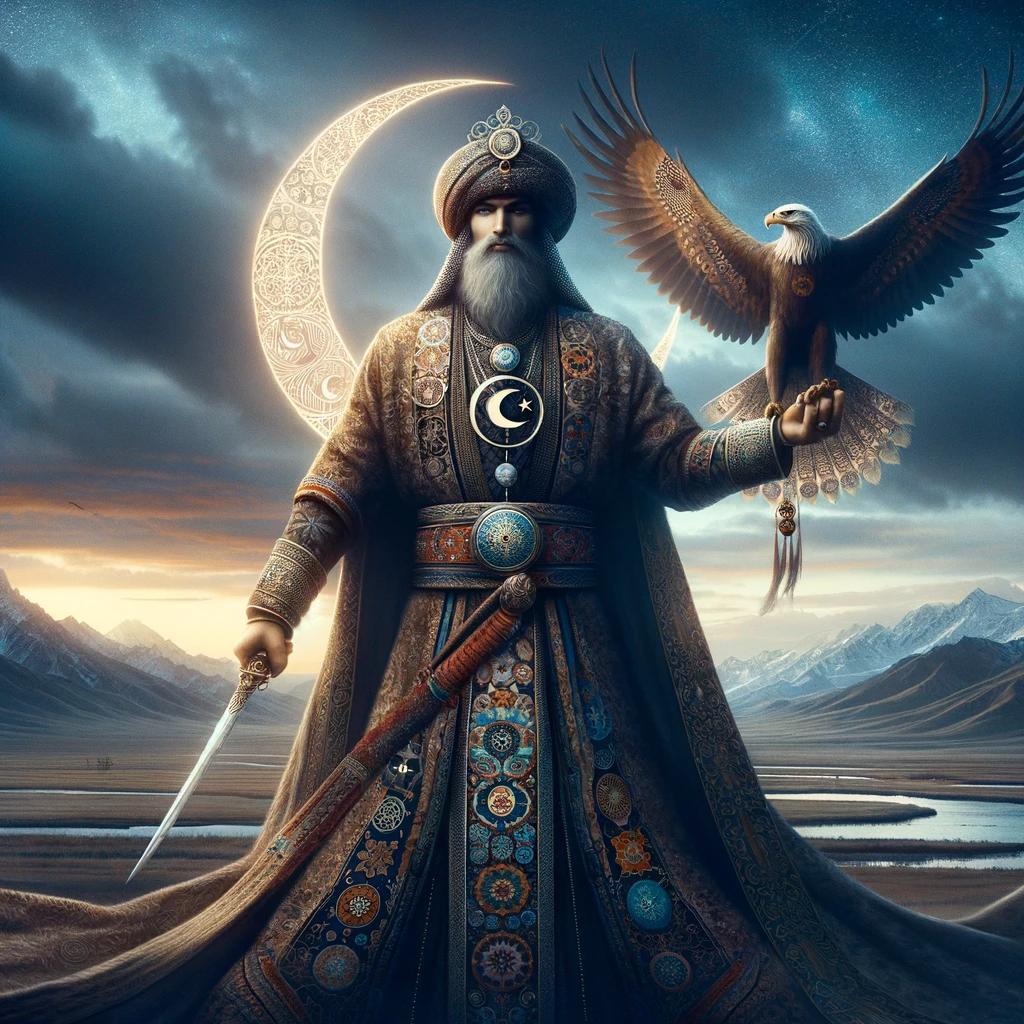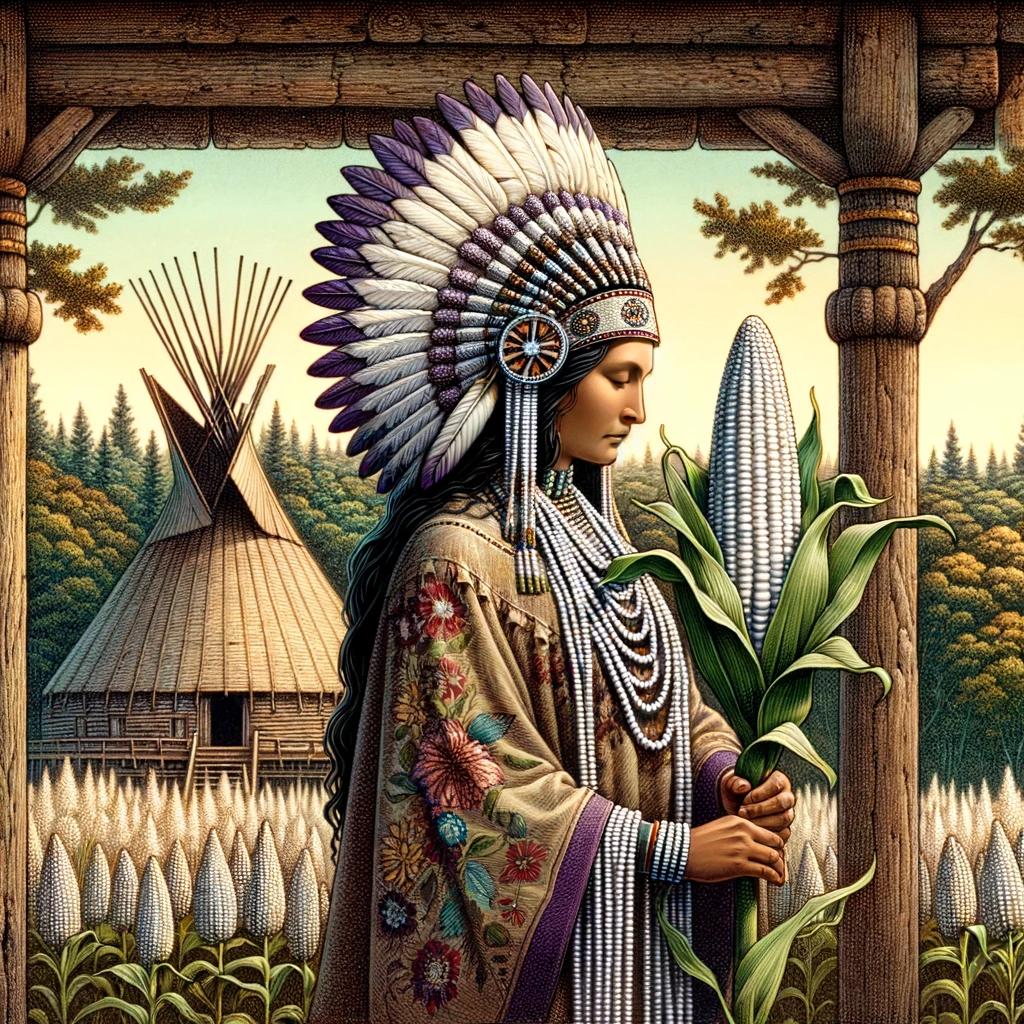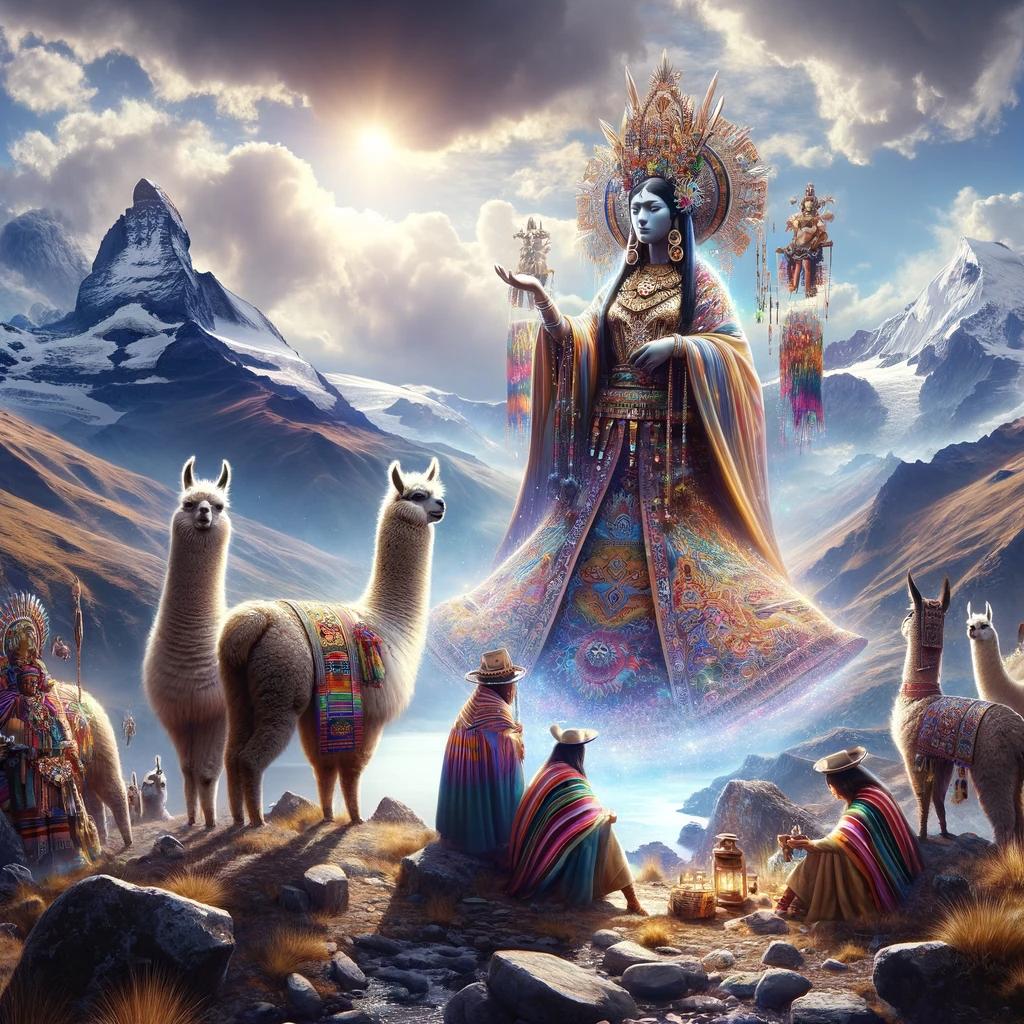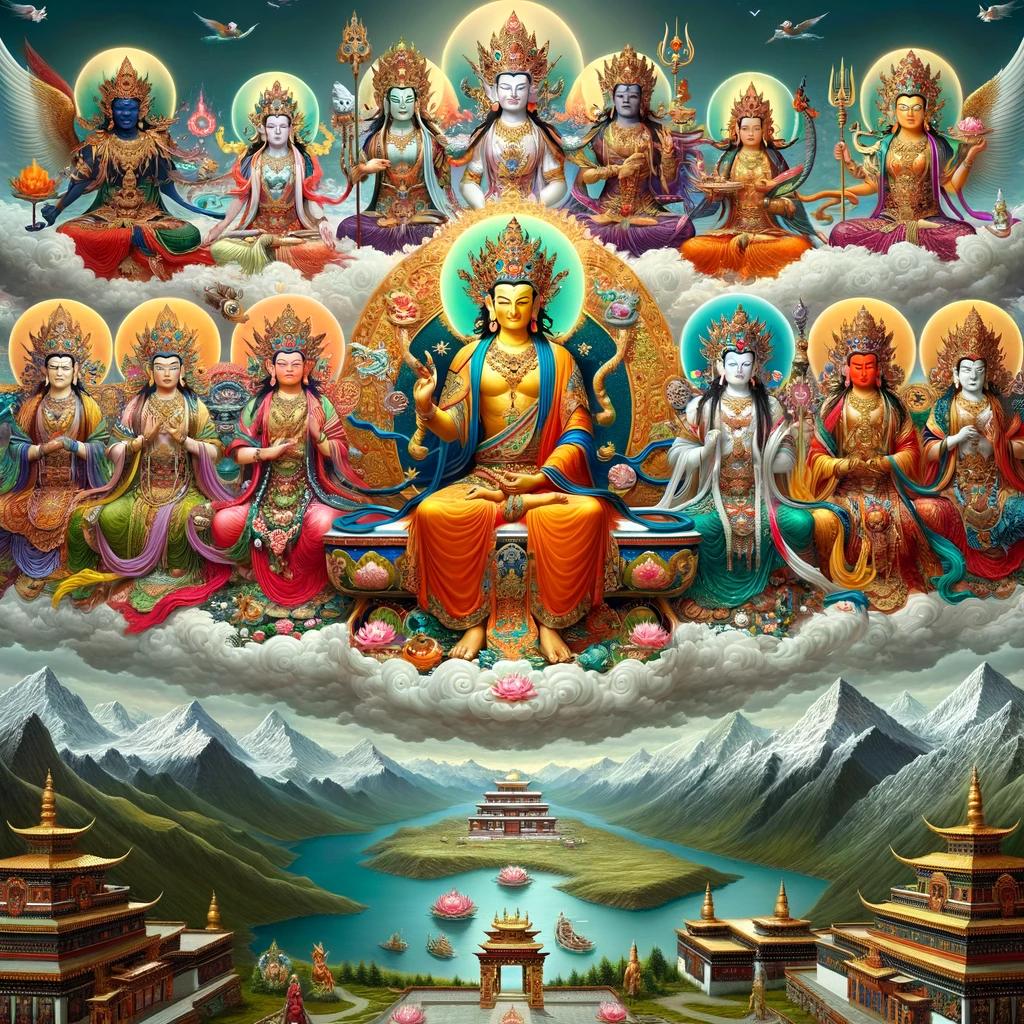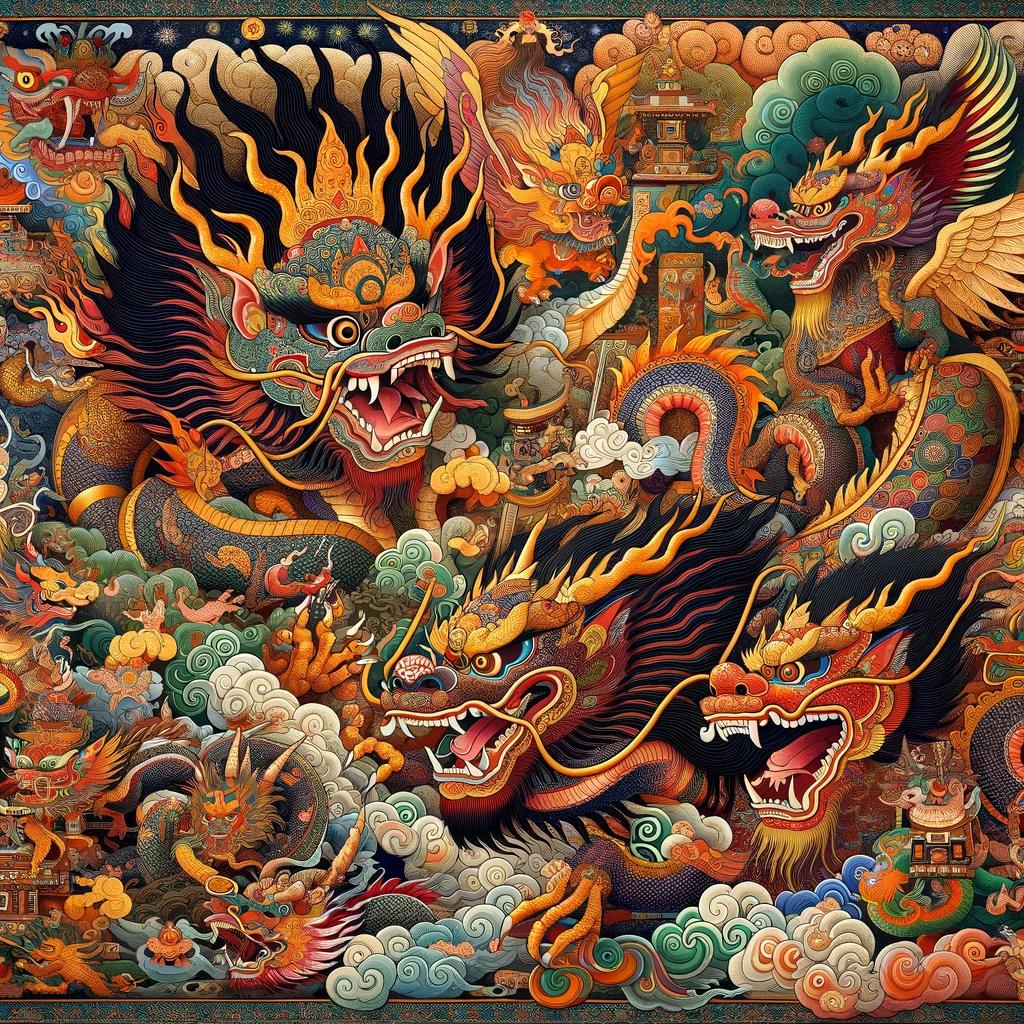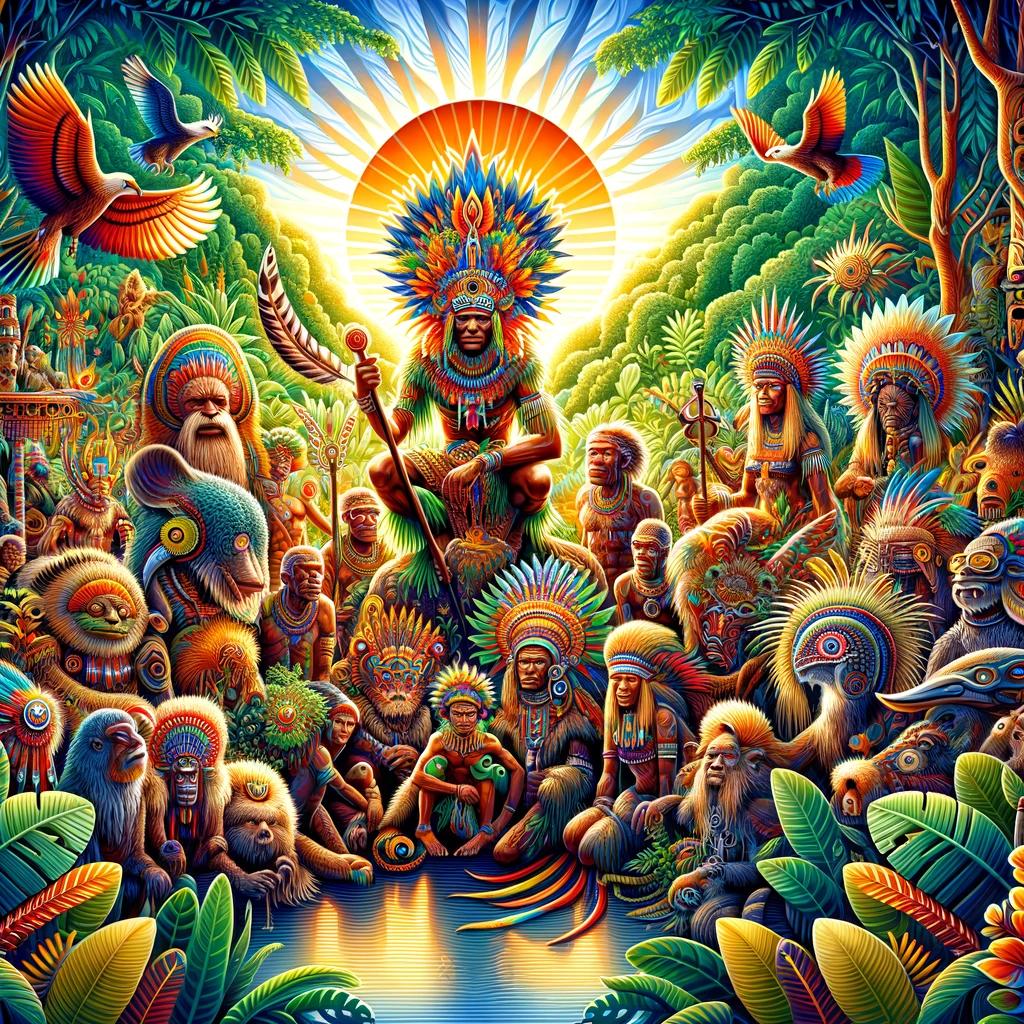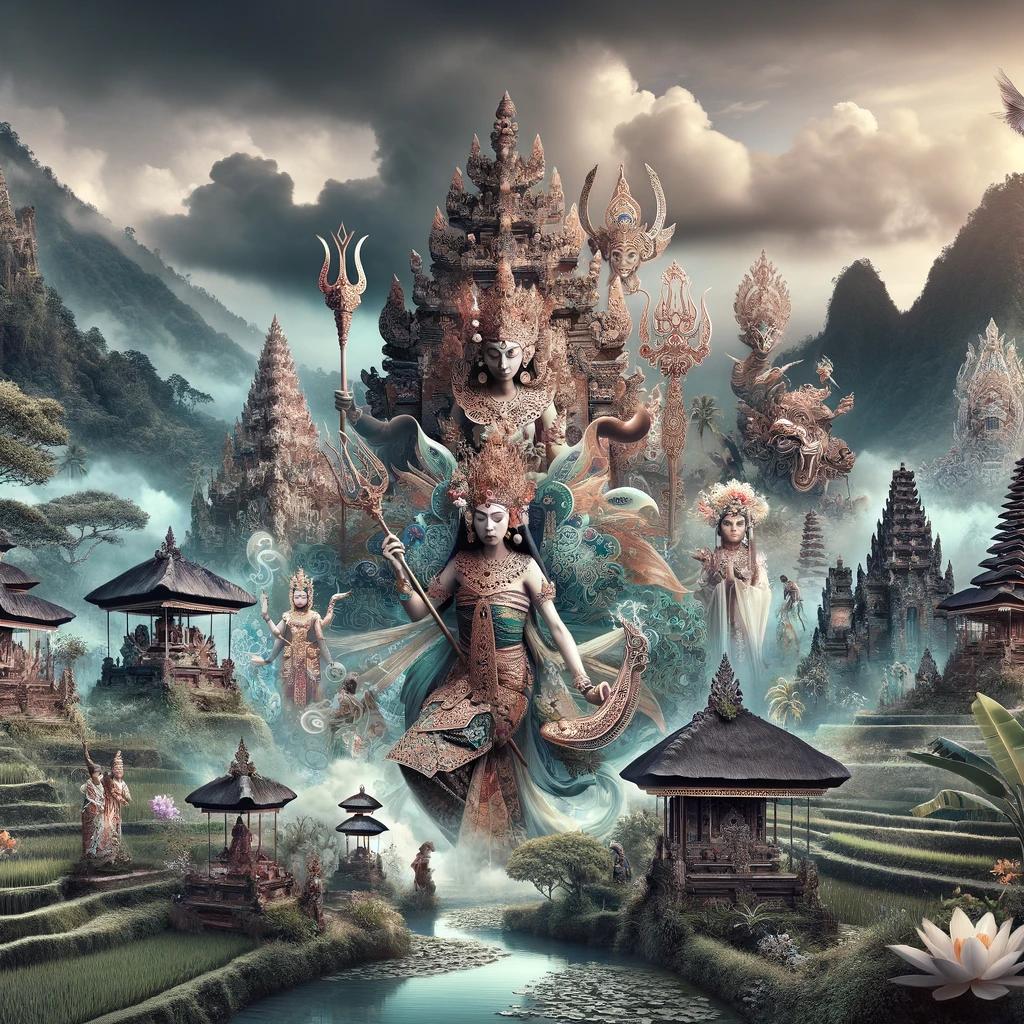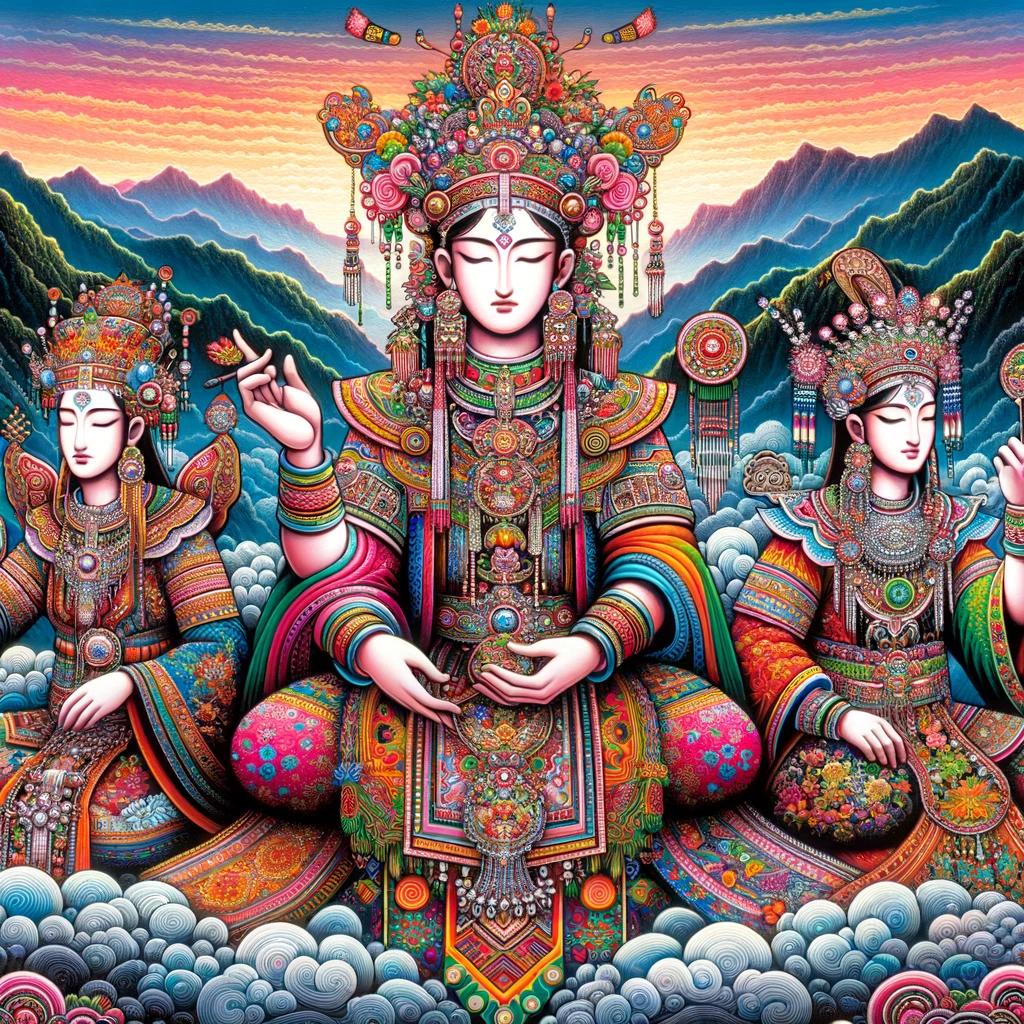Bantu Mythology Gods and Goddesses: Unveiling the Divine Beings of Africa’s Bantu Cultures
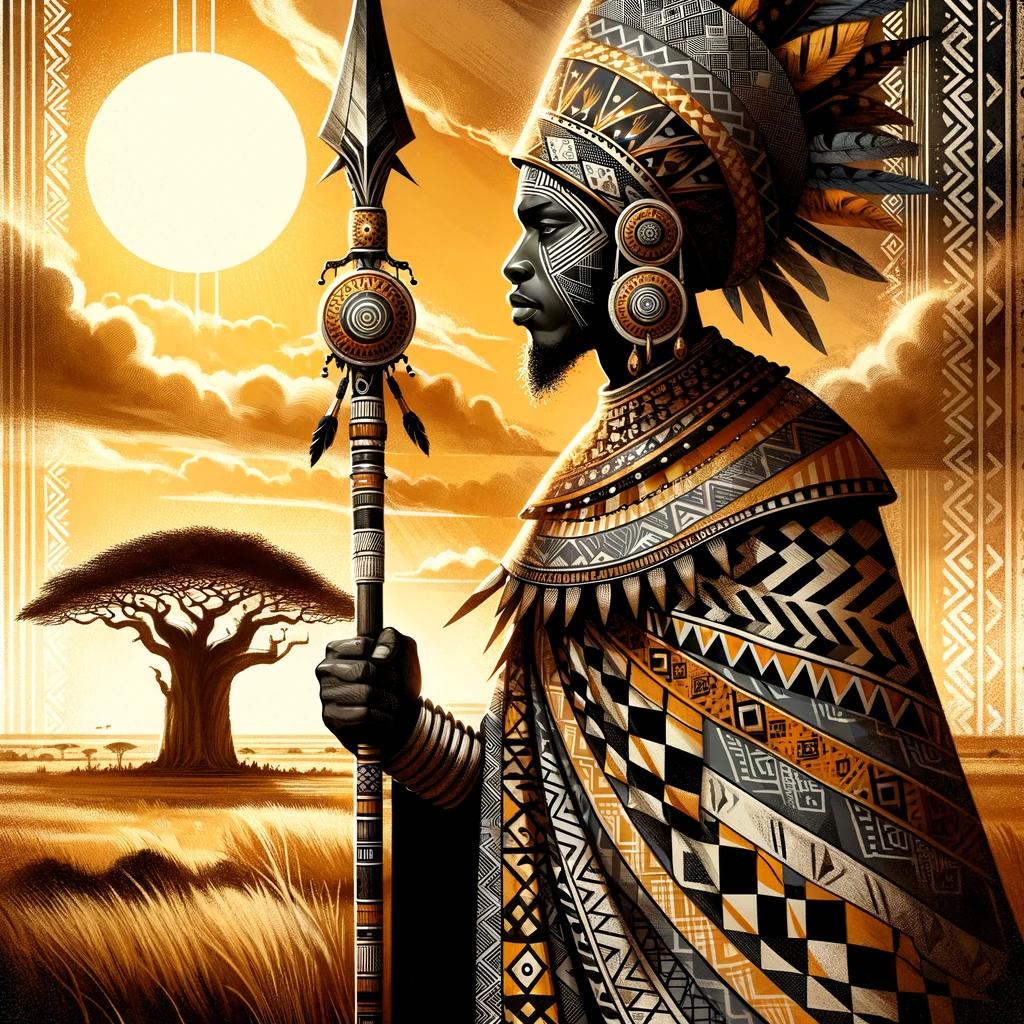
Bantu mythology gods and goddesses are deeply rooted in the beliefs and legends of the Bantu peoples of Africa. With a common belief in a supreme deity, such as Nyambe or Nzambe, Bantu cultures honor and worship a variety of gods, spirits, and ancestral beings.
Their spirituality revolves around animism, reverence for nature, ancestral connections, and the afterlife. Over time, the arrival of Christianity and Islam has influenced and modified certain aspects of Bantu mythology.
This article explores the rich tapestry of Bantu mythology, from deities and ancestral worship to nature reverence and the impact of other religions.
Understanding Bantu Deities and the Supreme God
In Bantu mythology, the belief in deities plays a significant role in shaping the spiritual traditions of Bantu cultures. The supreme god, revered by many Bantu communities, is known by different names such as Nyambe or Nzambe.
This deity is considered the highest among all gods, although the exact nature of this supreme god remains somewhat undefined in Bantu mythology.
Nyambe and Nzambe: The Supreme God in Bantu Mythology
Nyambe or Nzambe, the supreme god in Bantu mythology, is worshipped across many Bantu cultures in Africa.
This deity holds a central position and is revered as the creator of the universe and all existence. The characteristics and attributes associated with Nyambe/Nzambe may vary across different Bantu communities, reflecting the diversity within Bantu mythology.
Roles and Attributes of Bantu Deities
Besides the supreme god, Bantu mythology encompasses a wide range of other deities, each with specific roles and attributes. These deities might be associated with natural elements, celestial bodies, or even human characteristics.
For instance, there are deities connected to the sun, rain, fertility, and protection. They are believed to possess unique powers and abilities that influence various aspects of human life and the natural world.
Throughout Bantu cultures, rituals, offerings, and prayers are dedicated to these deities to seek their favor, guidance, and protection. Bantu people believe that by honoring and appeasing these deities, harmony and balance can be maintained within the community and the environment.
Understanding the roles and attributes of Bantu deities provides insights into the cultural and spiritual significance they hold within the Bantu mythology. Their worship and reverence shape the daily lives and rituals of Bantu communities, highlighting the deep connection between the divine and human existence.
Ancestral Worship and the Connection to the Spirit World
Ancestors are believed to reside in the ancestral realm, a parallel dimension connected to the physical world. They are seen as intermediaries between the human realm and the spiritual realm, capable of communicating with the living and offering blessings or guidance.
Rituals and Practices related to Ancestral Worship:
Ancestral Offerings and Prayers:
Bantu communities engage in various rituals to honor and connect with their ancestors. Offerings such as food, drinks, and other symbolic items are presented as a sign of respect and gratitude.
Prayers and invocations are recited to establish a connection and seek the ancestors’ protection, blessings, or assistance in daily life.
Ancestral Altars and Shrines:
Many Bantu households maintain ancestral altars or shrines as sacred spaces dedicated to their ancestors. These altars are adorned with ancestral relics, photographs, or symbolic representations. Regular offerings, prayers, and rituals take place at these altars to maintain the spiritual connection and honor the ancestors.
Ceremonies and Festivals:
Special ceremonies and festivals are held to pay homage to the ancestors. These events often involve communal gatherings, music, dances, and storytelling to celebrate and remember the legacy of the ancestors.
Through these rituals and festivities, Bantu communities affirm their cultural identity and strengthen their spiritual connection with their ancestral heritage.
Nature Worship in Bantu Mythology
Nature worship is an integral aspect of Bantu mythology, reflecting the deep connection between the Bantu people and their natural surroundings. Within this belief system, natural elements and forces are revered and seen as manifestations of spiritual power and presence.
Reverence for Natural Elements and Forces
In Bantu mythology, natural elements such as mountains, rivers, and forests are considered sacred. They are believed to be inhabited by ancestral spirits and deities, representing the divinity and life force within these natural entities.
They are associated with powerful water spirits and considered channels of divine energy.
The Spiritual Significance of Animals and Plants
In Bantu mythology, animals and plants are viewed as spiritual beings with their own power and significance.
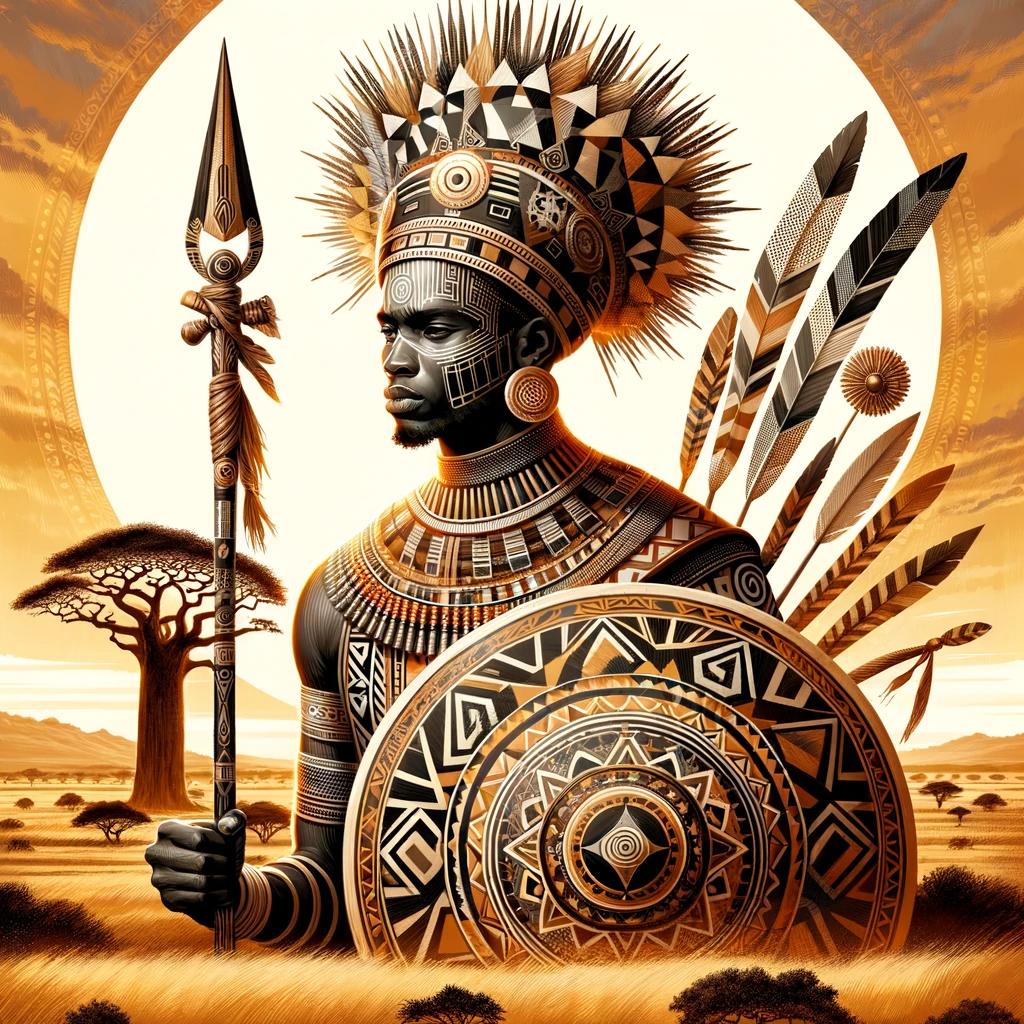
They are considered intermediaries between humans and the divine, acting as messengers, protectors, and sources of wisdom.
- Animals represent various qualities and attributes that hold symbolic meanings. The lion, for instance, embodies strength and royalty, while the elephant symbolizes wisdom and longevity.
- Plants, such as sacred trees and medicinal herbs, are believed to possess healing properties and are used in rituals and ceremonies for spiritual purification and connection with the divine.
Within the framework of nature worship, the Bantu people maintain a harmonious relationship with the environment, emphasizing the interconnectedness between humans, nature, and the spiritual realm.
This reverence for natural elements and the recognition of their spiritual significance play a vital role in the Bantu mythology and cultural identity.
Exploring the Afterlife in Bantu Beliefs
Exploring the afterlife is a fascinating aspect of Bantu beliefs, shedding light on their understanding of death, spirits, and the soul’s journey beyond earthly existence.
Concepts of Death and the Afterlife
In Bantu mythology, death is seen as a transition rather than an end.
It is believed that the soul continues its existence in the afterlife, embarking on a spiritual journey. The afterlife is often described as a realm inhabited by ancestral spirits and various supernatural beings.
Furthermore, Bantu cultures hold diverse beliefs about the afterlife’s nature and the souls’ destiny. Some believe in reincarnation, where the soul is reborn into a new body, while others believe in an eternal resting place or a realm of collective ancestors.
Rituals and Traditions for Honoring the Deceased
The Bantu people have rich rituals and traditions to honor and remember their deceased loved ones. These practices aim to maintain a connection between the living and the ancestral spirits, seeking their guidance and protection.
- Funeral Ceremonies: Funerals are significant events marked by elaborate rituals, cultural expressions, and communal mourning. They vary across different Bantu cultures but often involve singing, dancing, storytelling, and feasting.
- Ancestral Offerings: Bantu communities offer food, drink, and other items to their ancestors as a sign of respect and to ensure their well-being in the afterlife.
These offerings are made at specific times and during important life events.
- Annual Remembrance: Bantu cultures observe annual ceremonies dedicated to the remembrance of ancestors and their ongoing presence in the lives of the living.
These ceremonies involve prayers, rituals, and communal gatherings.
- Mediumship and Spirit Communication: Some Bantu communities employ mediums or spiritual practitioners to communicate with the ancestral spirits. These individuals act as intermediaries, bridging the gap between the physical and spiritual realms.
By engaging in these rituals and traditions, the Bantu people honor their ancestors, seek their blessings, and maintain a strong sense of interconnectedness between the living and the spirit world.
Influence of Christianity and Islam on Bantu Mythology
Christianity and Islam have significantly impacted Bantu mythology, bringing about changes and adaptations in religious beliefs and practices. The introduction of these monotheistic religions has influenced the way Bantu peoples perceive and interact with their traditional deities and spiritual beings.
Adoption of Monotheistic Beliefs
With the arrival of Christianity and Islam, Bantu societies witnessed the adoption of monotheistic beliefs, aligning the concept of the Supreme God in Bantu mythology with the monotheistic God of these religions.
The traditional Bantu belief in a supreme deity, whether called Nyambe or Nzambe, has found common ground with the monotheistic idea of a singular, all-powerful God in Christianity and Islam. This adaptation has led to a fusion of Bantu mythology with the teachings and practices of these new religious systems.
Syncretism and Integration of Traditional and New Religious Practices
As Bantu communities encountered Christianity and Islam, syncretism took place, resulting in the integration of traditional Bantu mythology with elements from these new religious traditions.
Elements such as rituals, symbols, and concepts from Christianity and Islam became intertwined with Bantu mythology and practices.
This syncretism allowed for the preservation of some traditional beliefs while adapting to the new religious frameworks introduced by Christianity and Islam.
For example, rituals and ceremonies that once honored the Bantu deities have been merged with Christian or Islamic rituals, incorporating prayers, hymns, and religious symbols from these monotheistic religions.
The syncretic nature of Bantu mythology’s interaction with Christianity and Islam varies among different Bantu communities and regions. These adaptations reflect the ongoing evolution and dynamic nature of Bantu mythology in response to external influences.
Conclusion
The introduction of Christianity and Islam has brought about significant changes in Bantu mythology, including the adoption of monotheistic beliefs and the syncretic integration of traditional and new religious practices.
These changes have shaped the way Bantu societies perceive and engage with their spiritual and mythological traditions, showcasing the resilience and adaptability of Bantu mythology in the face of external influences.
Comparisons with Other African Mythologies
In the rich tapestry of African mythologies, there are intriguing similarities and differences when comparing Bantu mythology to African diaspora religions.
Similarities and Differences with African Diaspora Religions
Bantu mythology shares common themes and spiritual concepts with African diaspora religions such as Vodou, Santeria, and Candomble. Both traditions embrace the veneration of ancestors, the belief in supernatural forces, and the existence of various deities.
However, while Bantu mythology focuses on the worship of a supreme god and ancestral spirits, African diaspora religions incorporate syncretism, blending traditional African beliefs with Christian and indigenous practices.
Furthermore, Bantu mythology provides a foundation for the formation of African diaspora religions by serving as a source of inspiration and spiritual influence.
The connections between Bantu deities and their counterparts in diaspora religions contribute to a complex and nuanced understanding of African spirituality across different regions and cultural contexts.
Connections to Native American and Other Indigenous Belief Systems
While Bantu mythology is deeply rooted in African culture and traditions, there are fascinating connections that can be drawn between Bantu beliefs and Native American and other indigenous belief systems.
Shared elements include the reverence for nature, the belief in ancestral spirits, and the practice of sacred rituals. Similarities can be found in the spiritual significance attributed to animals, plants, and natural forces in both Bantu mythology and Native American traditions.
These connections are indicative of the universal human experience of seeking spiritual connection with the natural world and the ancestors, transcending geographical boundaries and cultural contexts. They highlight the interconnectedness of diverse indigenous belief systems and their shared understanding of the sacred.
Bantu mythology not only enriches our understanding of African spirituality but also provides insights into broader cultural and spiritual connections across different continents and indigenous cultures.
The Evolution and Preservation of Bantu Mythology
Impact of Colonialism and Westernization
The rich tapestry of Bantu mythology has experienced significant changes and challenges due to the impact of colonialism and Western influences.
With the arrival of European powers, traditional African belief systems underwent a transformation as they clashed with foreign ideologies and cultural practices. The imposition of Christianity and Islam, along with the erasure and demonization of indigenous beliefs, profoundly affected Bantu mythology.
During the colonial era, missionaries aimed to convert African populations to their respective monotheistic religions, leading to the gradual erosion of Bantu traditions. The suppression of indigenous spirituality and the loss of cultural autonomy resulted in a decline in the prominence and practice of Bantu mythology.
Forced assimilation and the substitution of traditional practices with Western religious norms disrupted the spiritual fabric of Bantu communities.
Contemporary Revival and Preservation Efforts
Despite the historical challenges, there has been a resurgence of interest and efforts to revive and preserve Bantu mythology in recent times. In response to the cultural alienation caused by colonialism, many Bantu communities have initiated movements towards reclaiming and celebrating their ancestral beliefs.
Contemporary revival efforts often involve extensive research, documentation, and oral transmission of traditional myths. These initiatives aim to reestablish a sense of cultural identity, reconnect communities with their heritage, and foster a deeper understanding of Bantu mythology among younger generations.
Additionally, Bantu mythology has gained recognition and appreciation beyond African borders, attracting scholars, researchers, and enthusiasts who contribute to its preservation and study.
Furthermore, Bantu cultural organizations and institutions have emerged to promote awareness, education, and celebration of Bantu mythology.
Festivals, gatherings, and community events serve as platforms to showcase and honor the gods, goddesses, and ancestral spirits of Bantu folklore. Through these initiatives, Bantu communities strive to protect and pass down their mythology, ensuring its continued presence and relevance in the modern world.
- Research and documentation of traditional myths
- Oral transmission of ancestral beliefs
- Recognition and appreciation beyond African borders
- Formation of cultural organizations and institutions
- Festivals and community events
The resilience and determination of Bantu communities to reclaim their cultural heritage have been instrumental in preserving and revitalizing Bantu mythology in the face of historical trauma and external influences.
These ongoing efforts contribute to the richness and diversity of African mythology and reinforce the significance of Bantu beliefs in today’s multicultural world.
..











